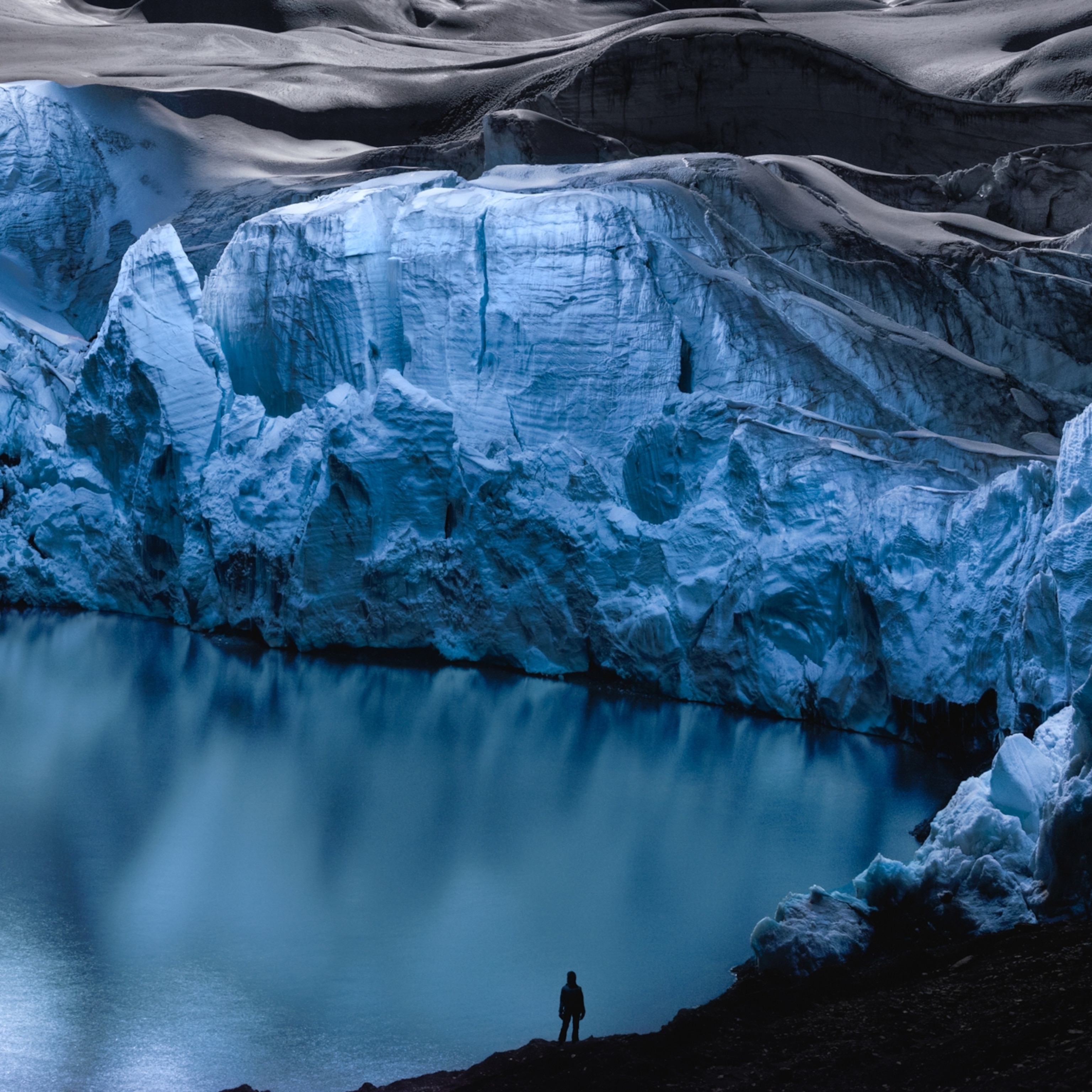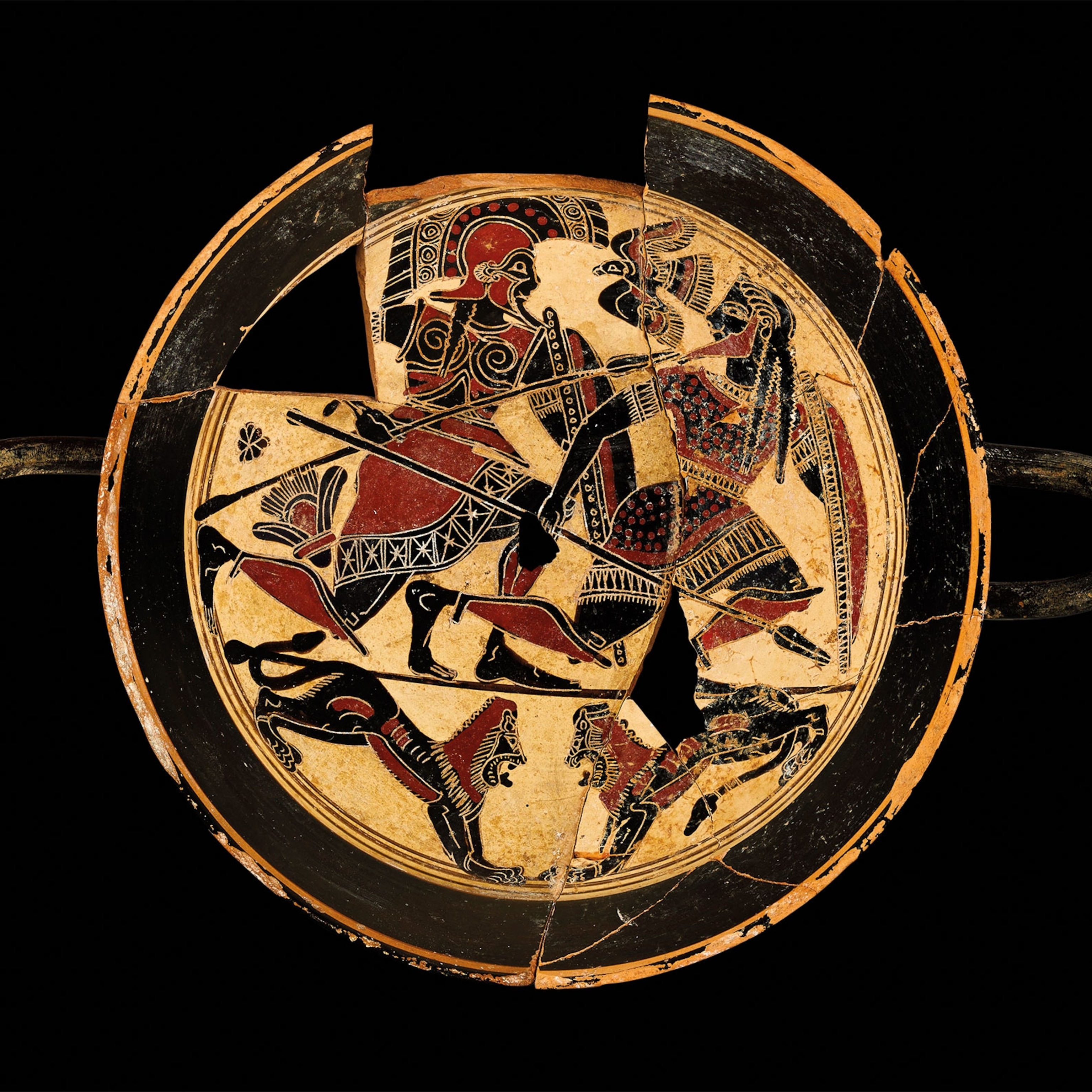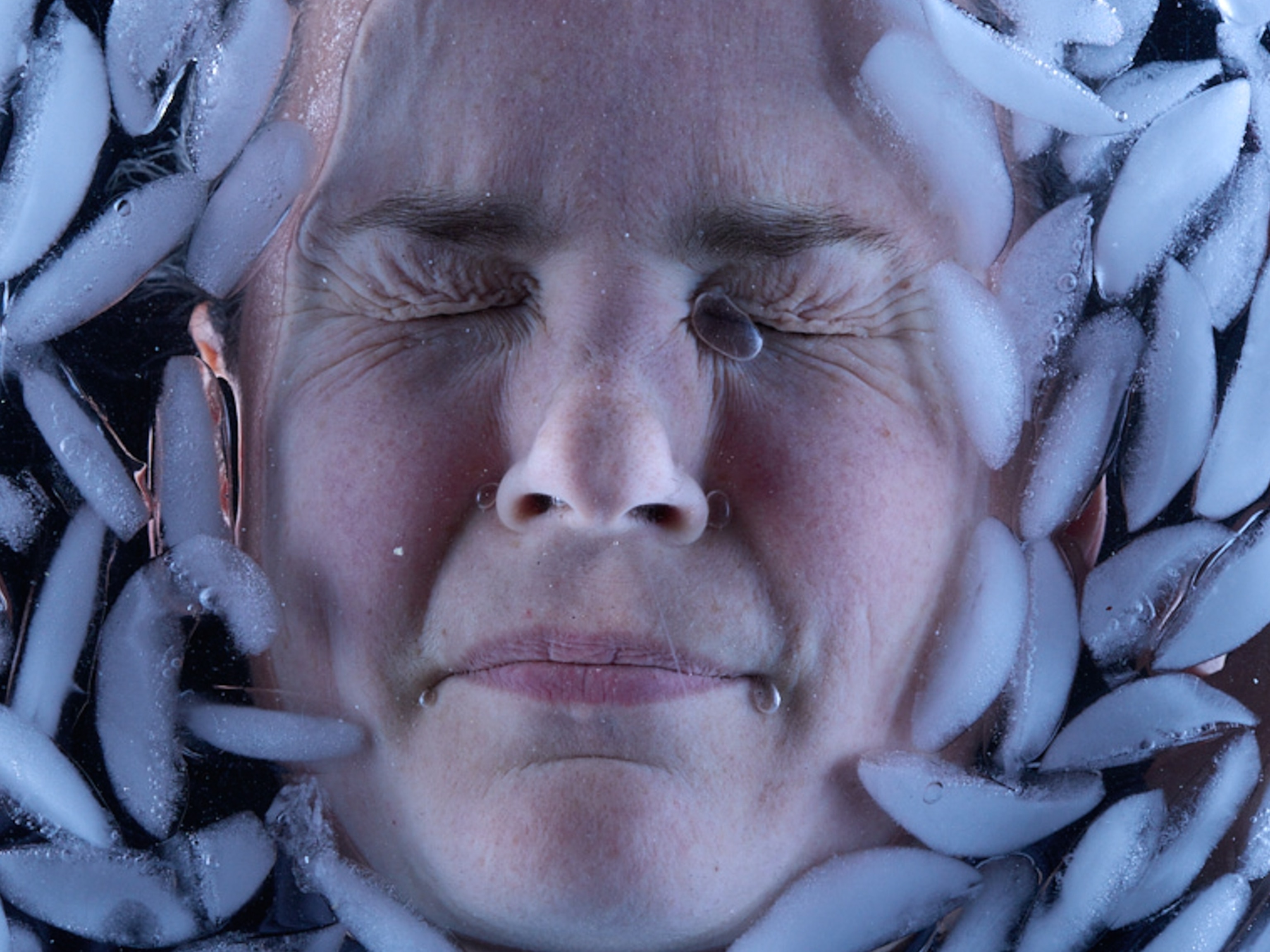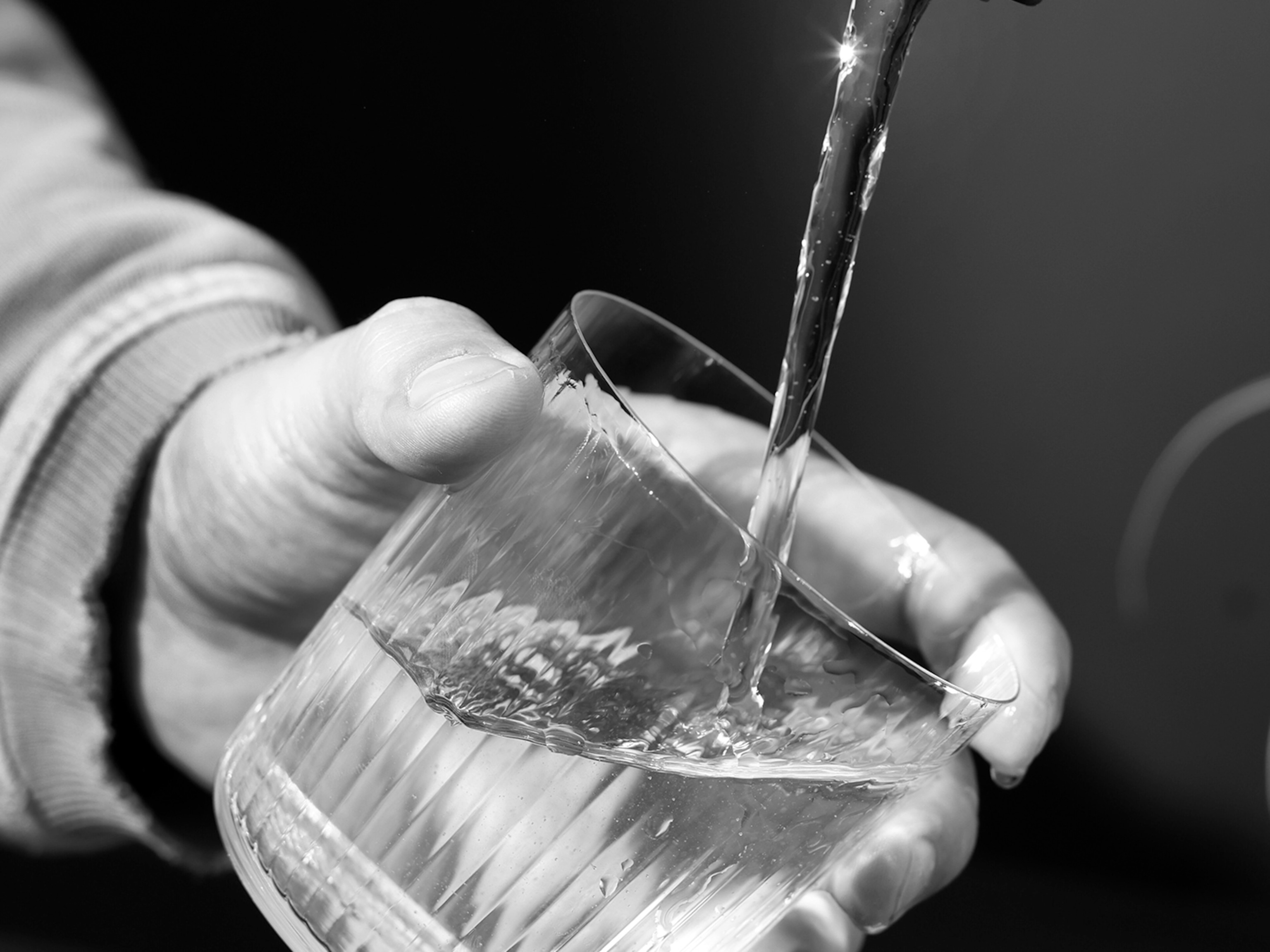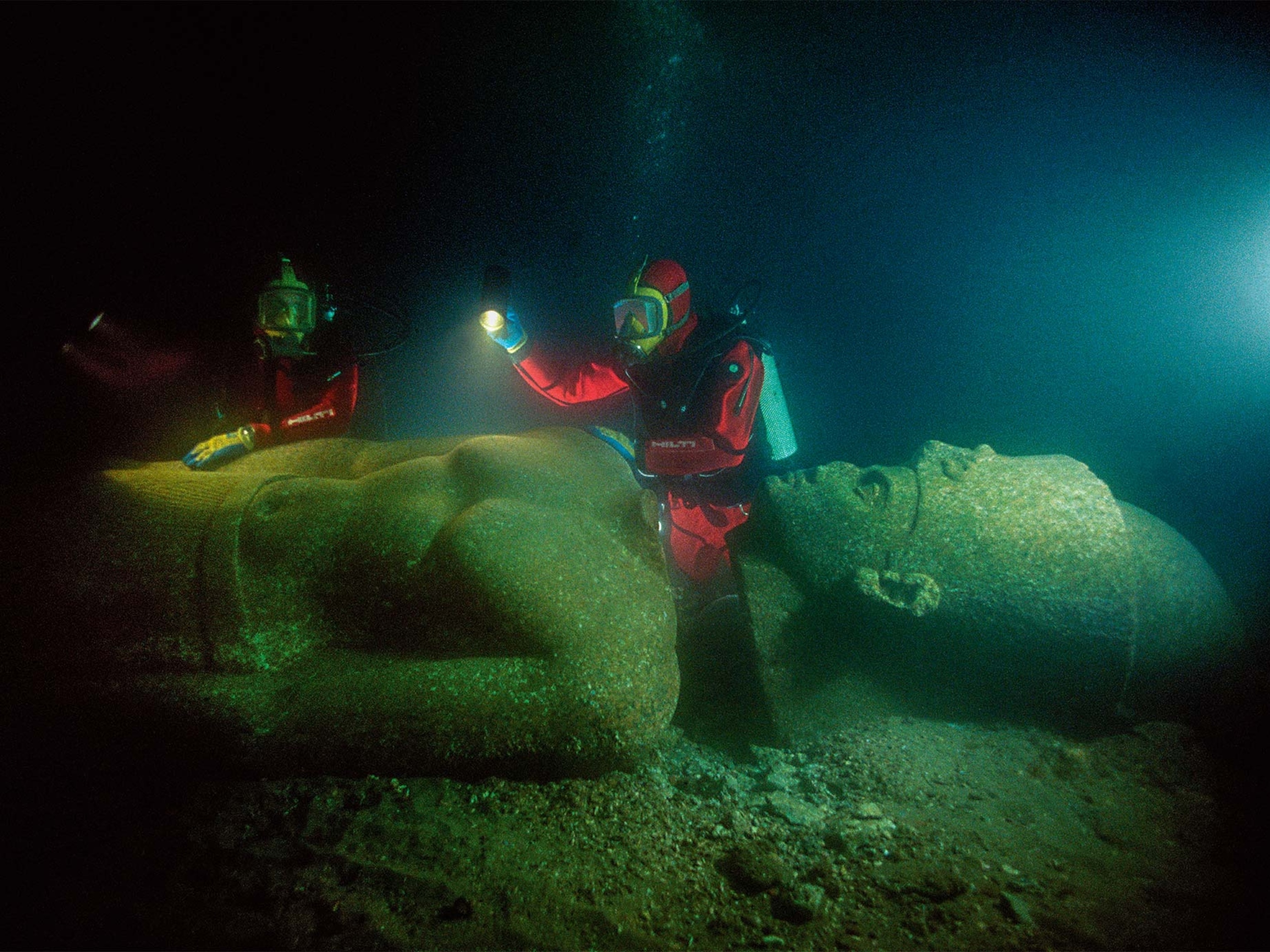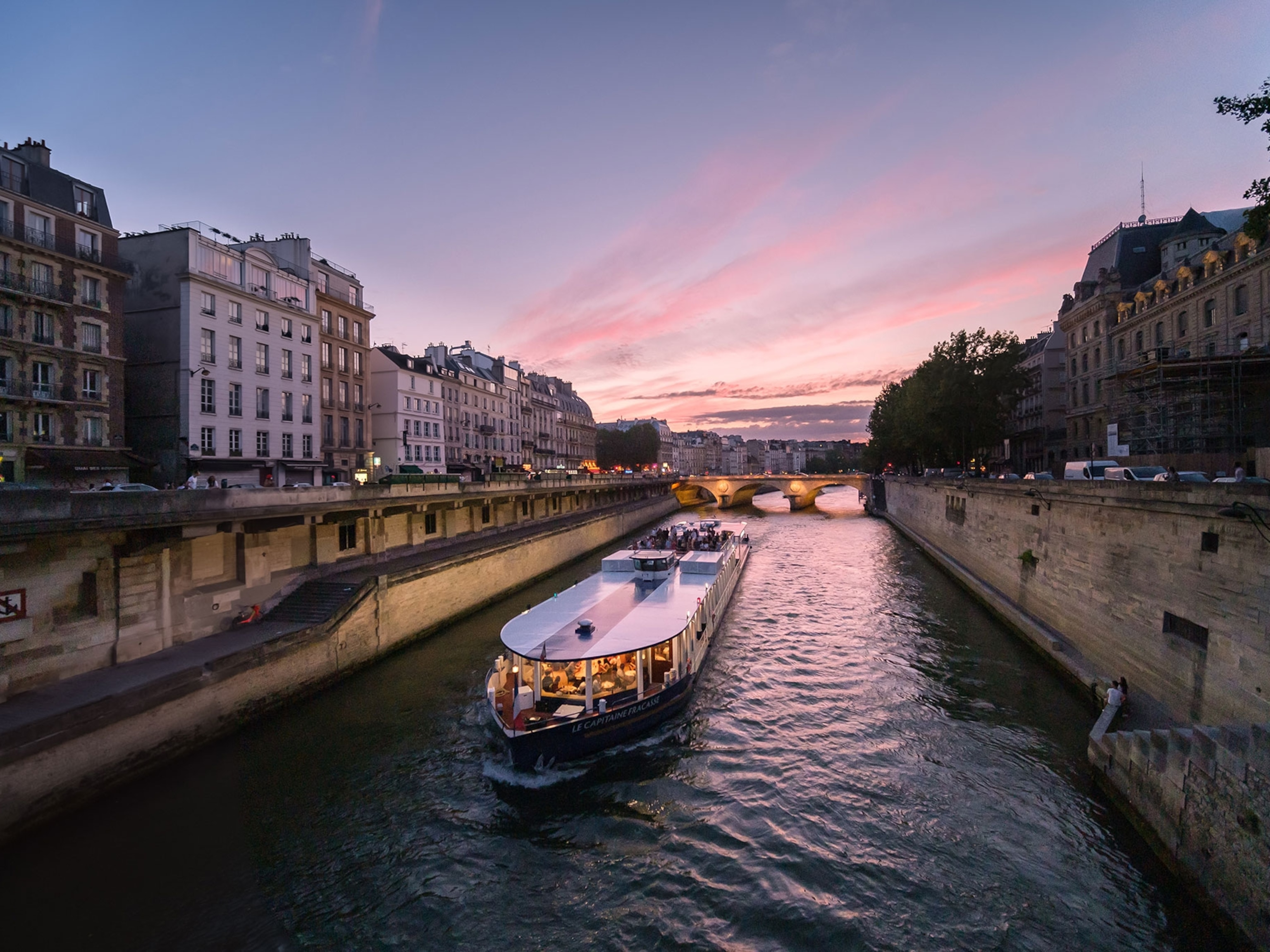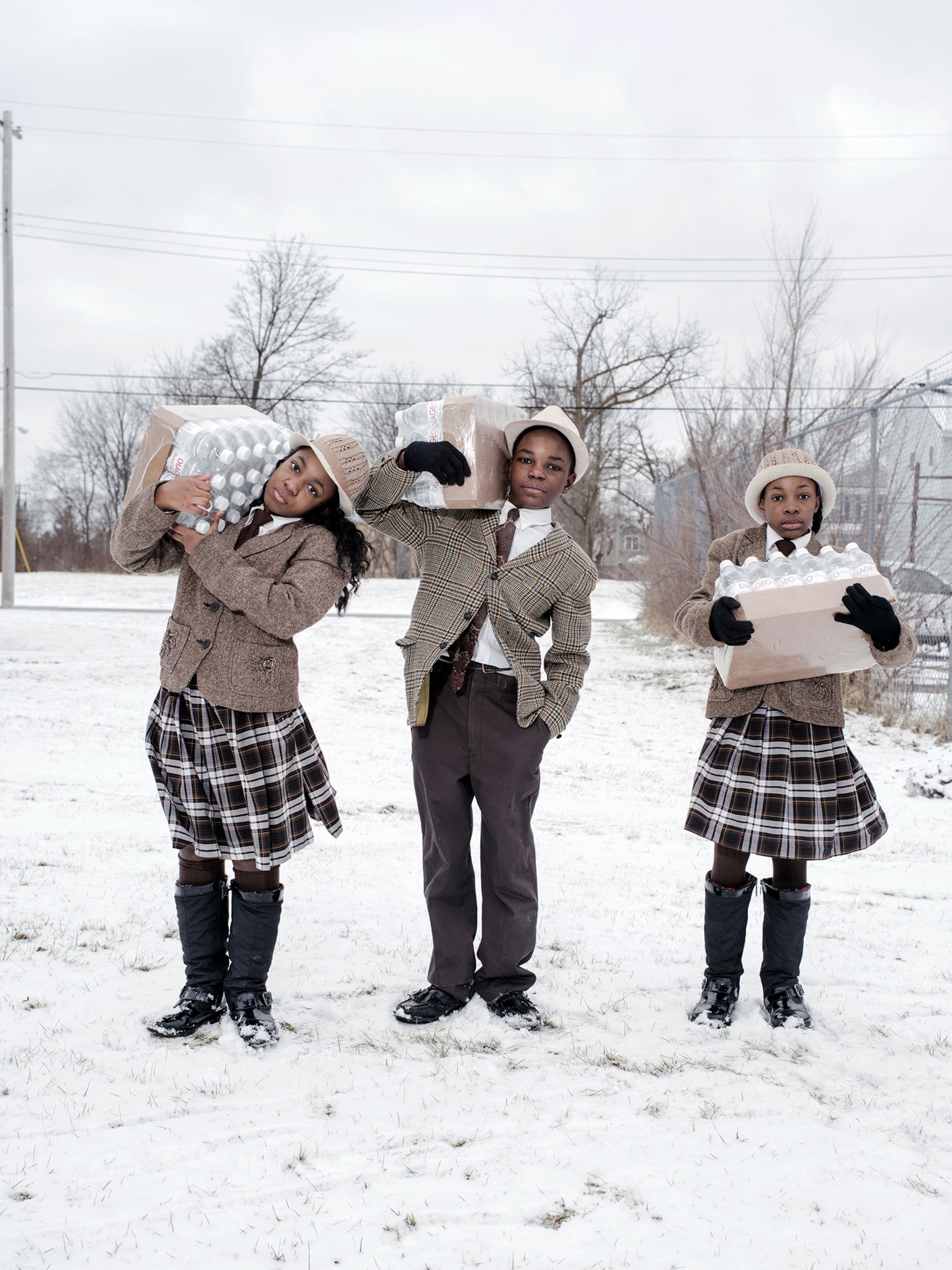
Intimate Portraits of Flint Show Frustration, Fear, Perseverance
“For months we had city officials tell us that it was OK to drink the water. We all had different types of illnesses going on but we never thought it was from the water.”
The water contamination crisis in Flint, Michigan, has forced the city's residents to dramatically change how they live. Everyday tasks like bathing, toothbrushing, and cooking have become difficult chores as the threat of lead poisoning and other maladies looms in the tap water.
Five of Flint’s fire stations now serve as bottled-water dispensaries. It's the only way many people can get potable water. Even though the city no longer draws its water from the contaminated Flint River, the pipes, which were damaged by the river water, continue to leach lead, and a federal disaster declaration remains in place.
These photos show the people behind the crisis, the people who can no longer trust the water that flows into their homes. Many are angry that the government didn’t act sooner. Records show state officials switched to drinking bottled water months before addressing the contaminations in Flint and months after residents first noticed an odd taste and smell to their tap water.
With an estimated 12,000 children exposed to lead-tainted water in Flint and a possibly related outbreak of Legionnaires' disease, the people of the city are worried about how much longer this will last.
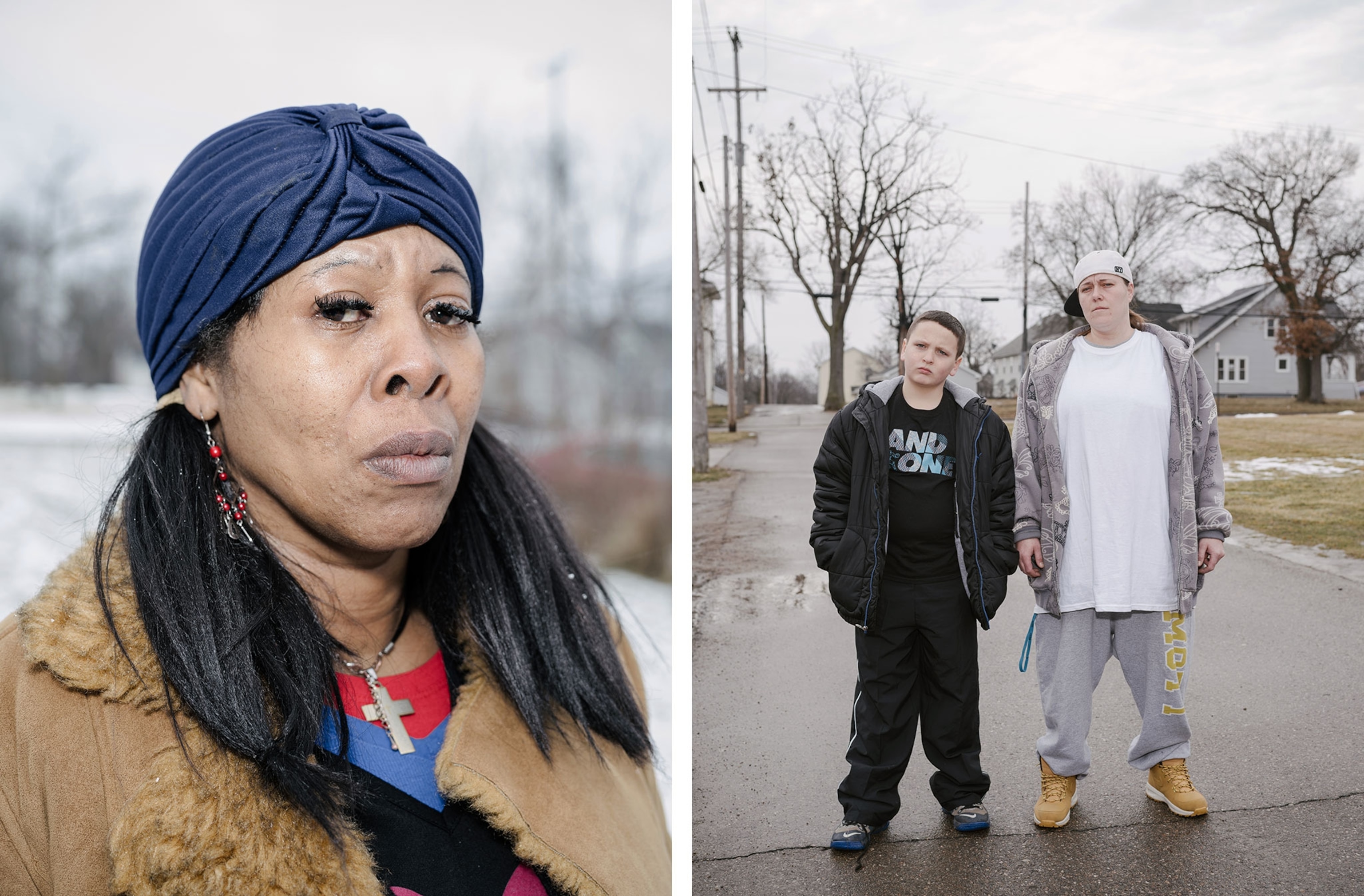
Mary Ida Barnett-Pierce (left), Tyler Harger and Trisha Smith (right)
Barnett-Pierce stands outside Fire Station #3. Harger and Smith prepare to pick up their daily allowance of bottled water at the same site.
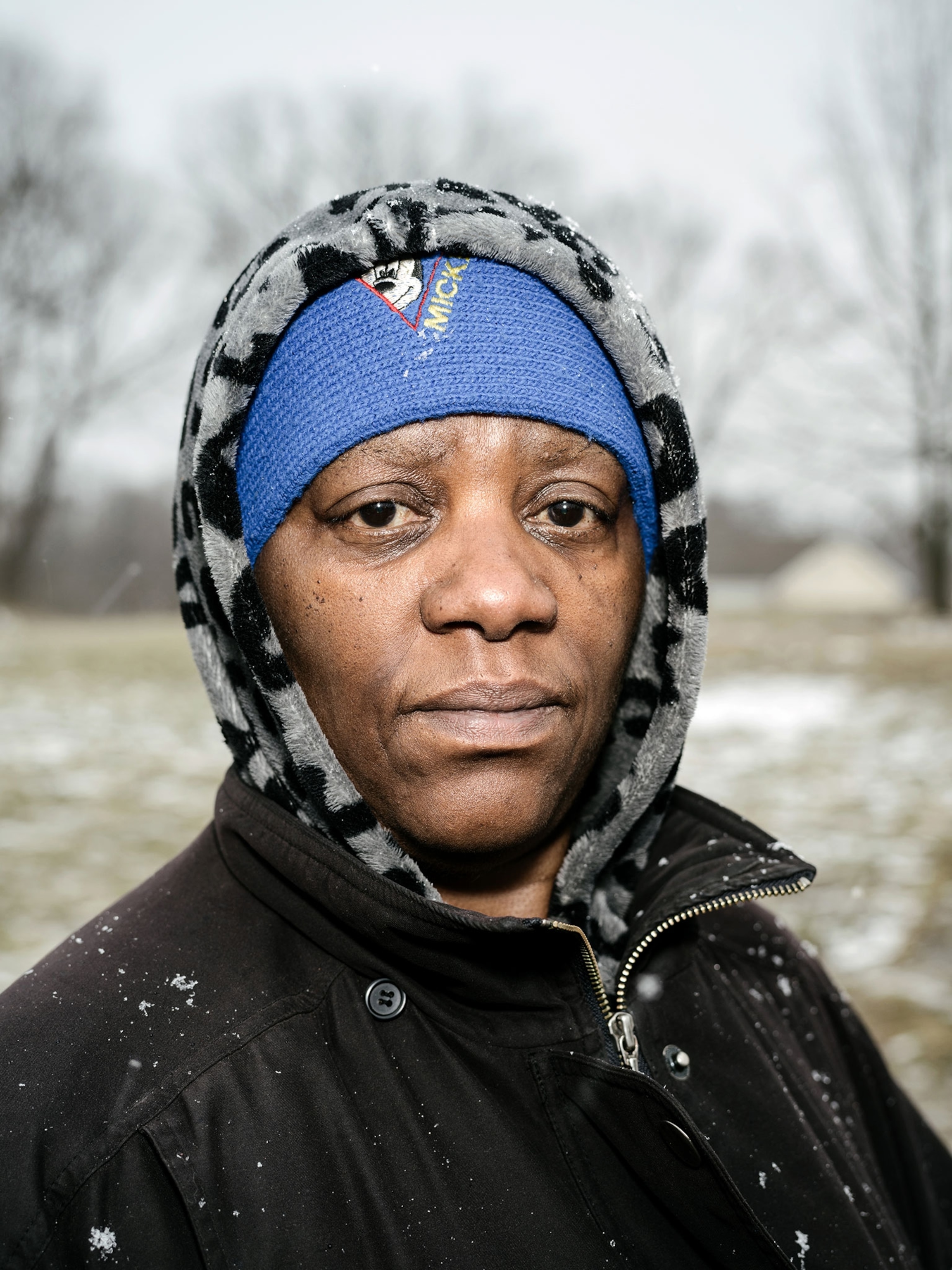
Teresa Terrell
“Well, this water situation … I don’t know why this couldn’t be fixed in the first place,” Terrell says. “It’s a lot of people, a lot of children, getting sick from this water. Even me and my children taking baths in it. We have little bumps, itchy bumps, on our arms.”
“If they knew this all along,” she says, “why they didn’t do anything or warn the public ahead of time?”
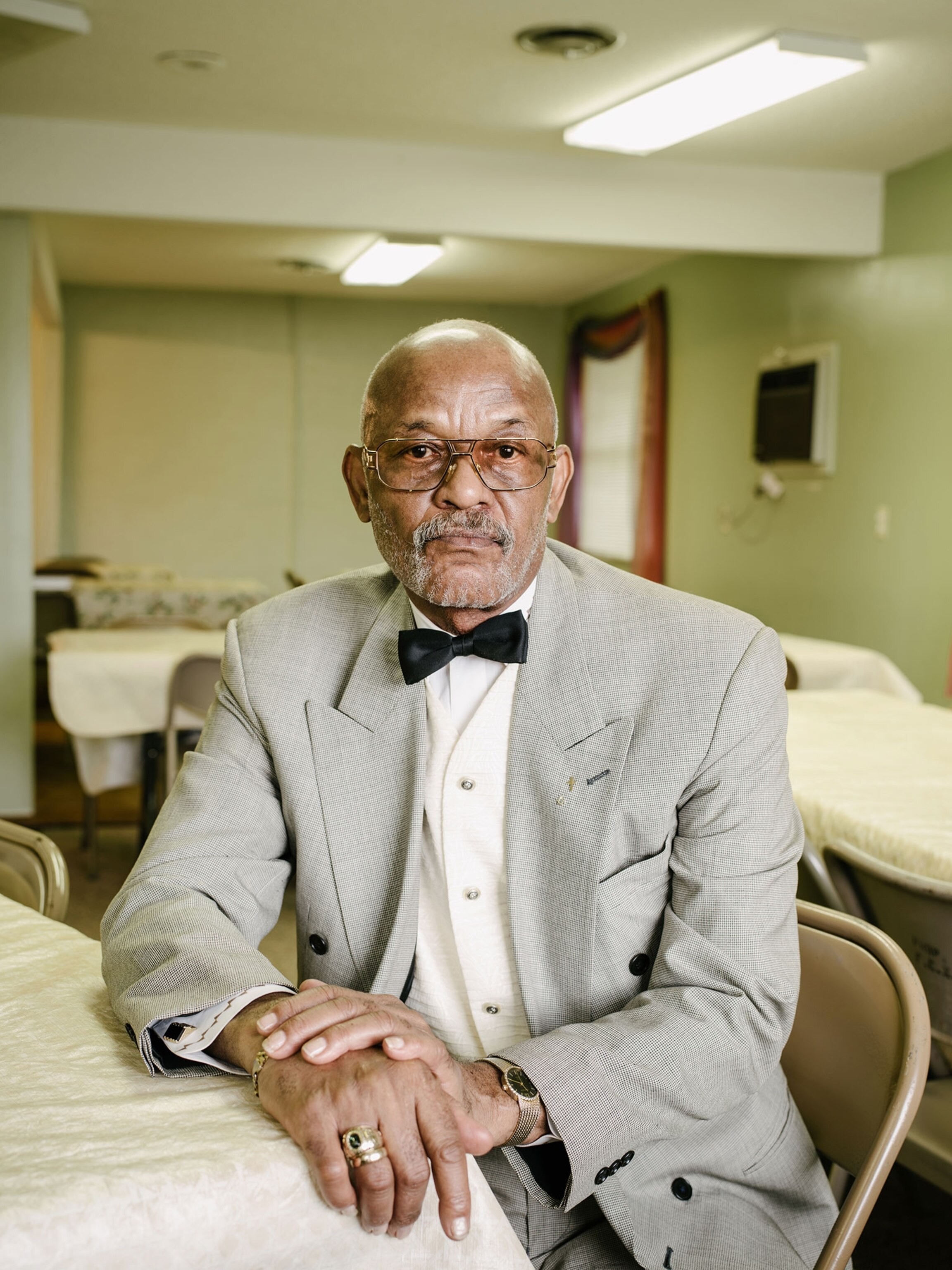
Pastor Ernest C. Martin
“There hasn’t been a ray of hope on what you see coming across the news,” says Martin. “And it’s generally been mass hysteria, fear, and worry about this or either that. My spirit has been that there needs to be a ray of hope.”
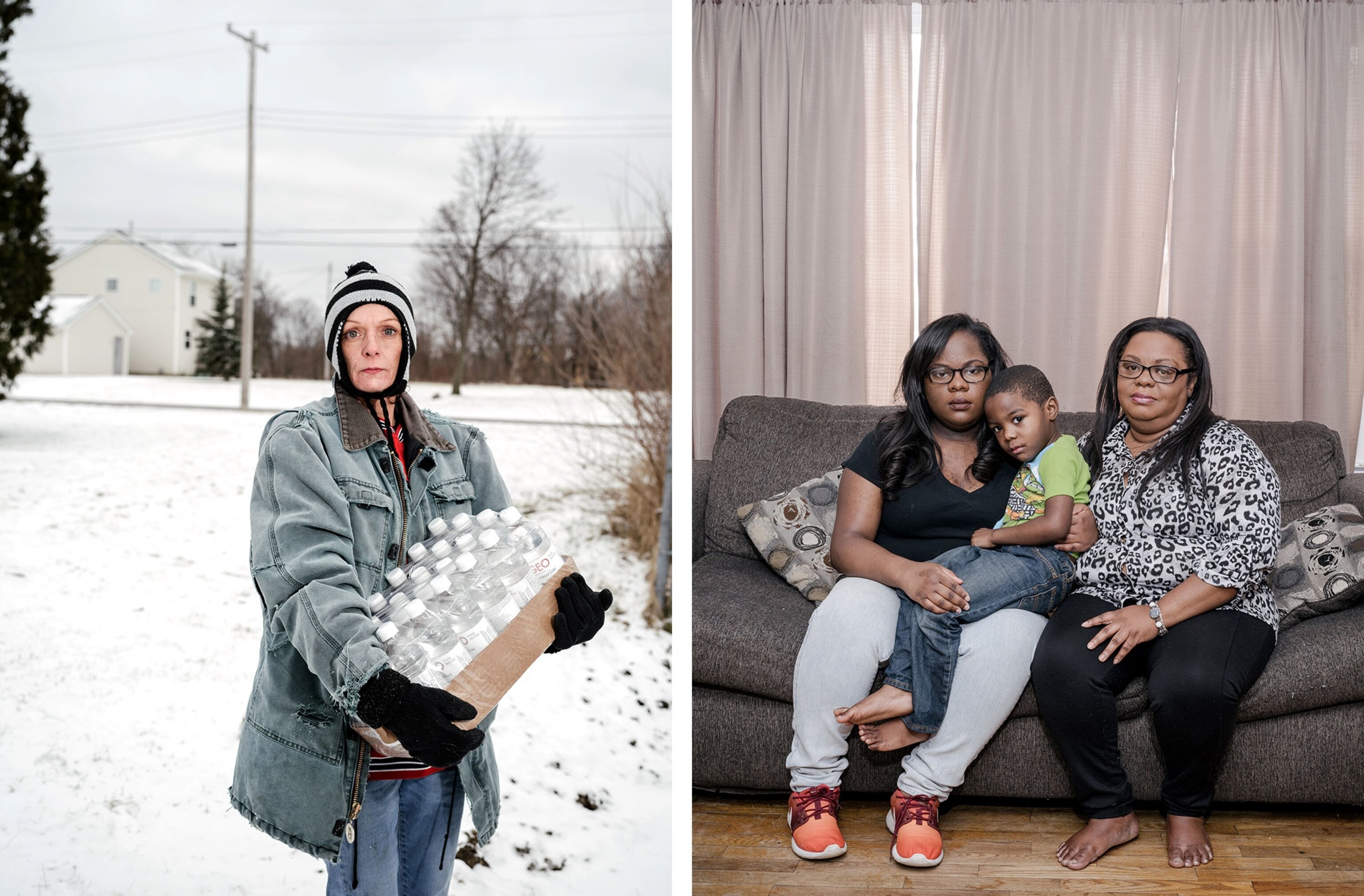
Julie Bennett (left), Keonna, Kirk, and Antionette Miles (right)
“When the water first switched over I remember taking a shower and I’m like, ‘It smells so funny in here,’” Keonna Miles says. “And I remember probably a few months after that I started getting rashes, all around my neck, mainly. My neck would turn a bright red and it would just be stinging and burning and then it would dry up and start getting flaky and just still burning.”
“Several of my family members have been affected by the Flint water contamination,” Antionette Miles says. “For months we had city officials tell us that it was OK to drink the water, even showed us that they were drinking the Flint water. We all had different types of illnesses going on but we never thought it was from the water.”
“I done had several upper respiratory infections,” she says. “I done had skin rashes, hair loss. We cooked with the water, we bathed. I’m worried about two, three years from now, what else is gonna come up. Cancer. I’m worried about how it done affect the inside of my body that haven’t come out with the different tests yet.”
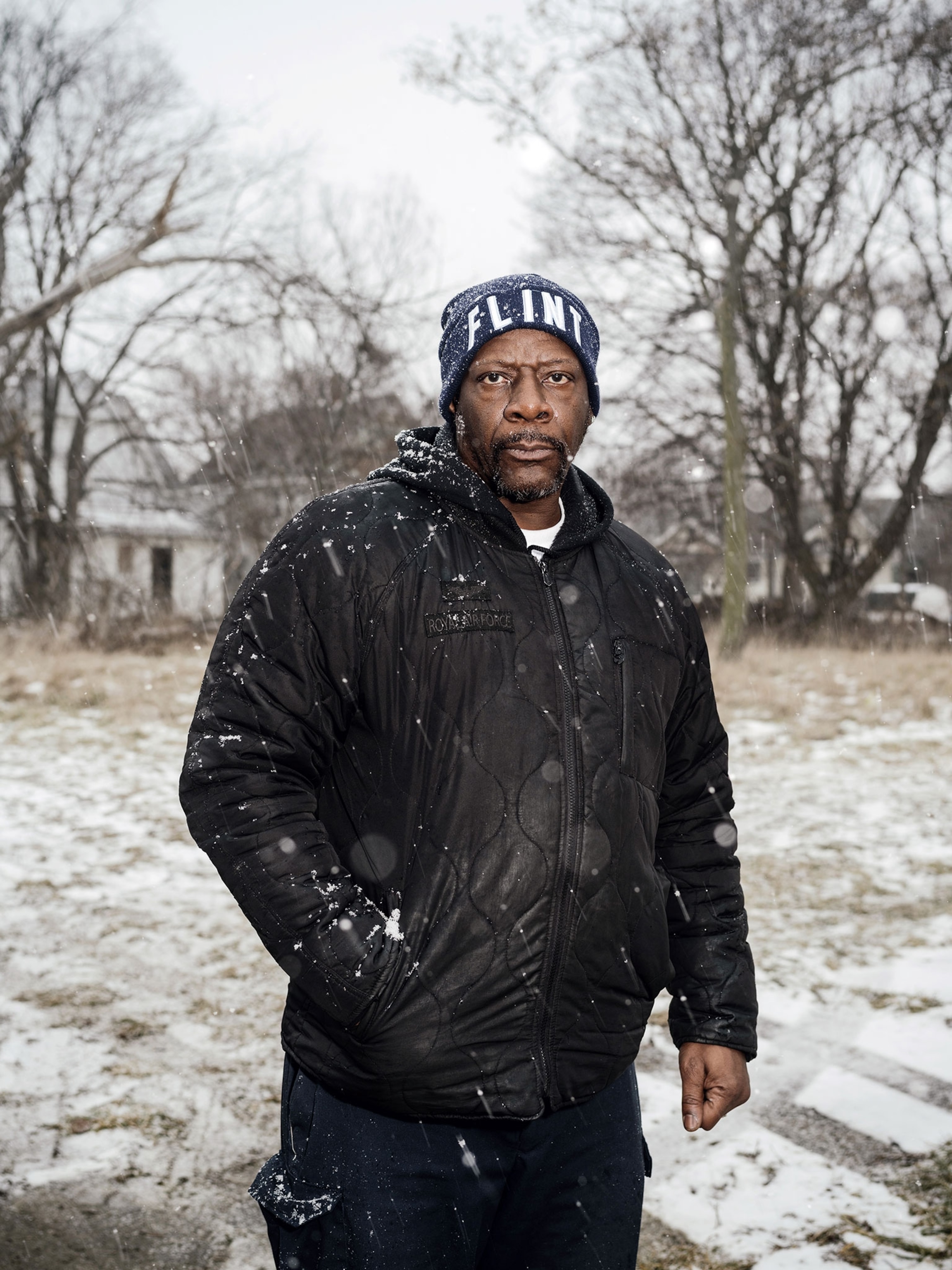
Von Lathan
“You know how many babies here is affected now, man, for the rest of their lives?” Lathan asks. “And to my understanding and my little research it’s irreversible once you get lead poison in the brain. It’s nothing you can do about it. And it’s like giving a whale a Tic Tac for bad breath, man, giving us a case a water a day. How we supposed to bathe, man?”
“I got a wife, and I got a daughter here,” he says. “I need way more than one case of water now. The people in charge need to take responsibility for what they’ve done to this city, man! People out here are mad as hell, man, and I’m one of ‘em.”
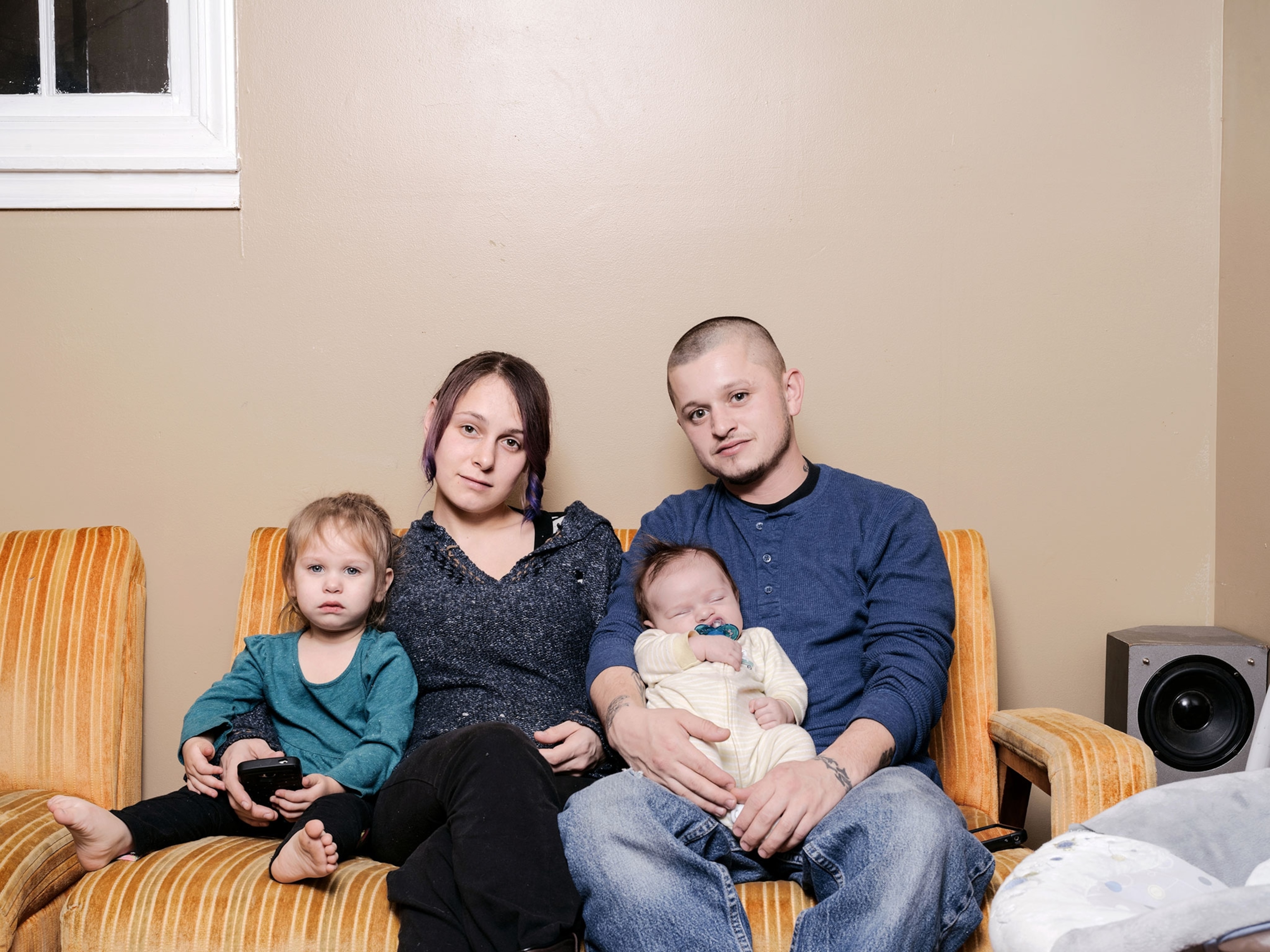
Nisa Lanoue and Brian Contreras
“There’s people out here that feed their kids formula. They’re feeding their babies and stuff with this water,” Lanoue says. “They have no choice because they don’t have a car to get out and go get the free water that’s being given. They don’t have the money to afford it and these kids are getting sick.”
“The hardest part about dealing with this water situation is having to do everything with the water,” Contreras says. “Bathing, cooking, washing—everything has to be done with bottled water … Our dogs drink bottled water. We brush our teeth with bottled water.”
“We can’t continue to bathe our kids with bottled water for the rest of their lives or until they’re 18,” he says. “That’s just not feasible.”
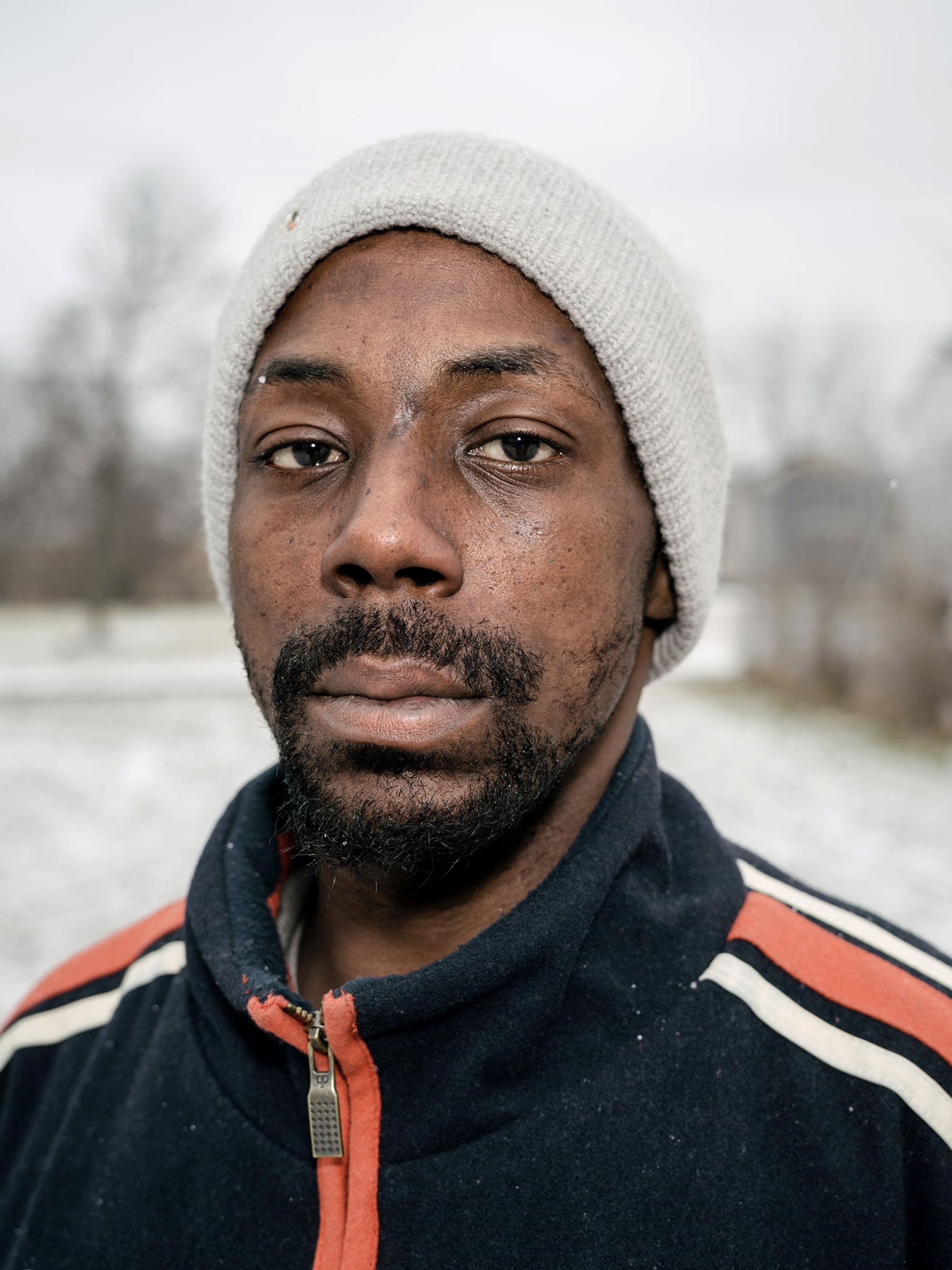
Reil Skinner
"When we did figure out that the water was bad, people like me that have sickle-cell disease, it affected me real bad,” says Skinner, on his way to collect a case of bottled water distributed by the Army National Guard. “From having my iron too high, blood count off, [I had to spend] days in the hospital."
You May Also Like
“It's just, paying water bills and can't use the water," he adds. "I got an 11-year-old daughter and a three-year-old daughter. Give them a bath, they be itching like they ain't even been washed up, the water so bad. Make them break out and everything. They're scratching their skin to where it's turning to sores now from the water.”
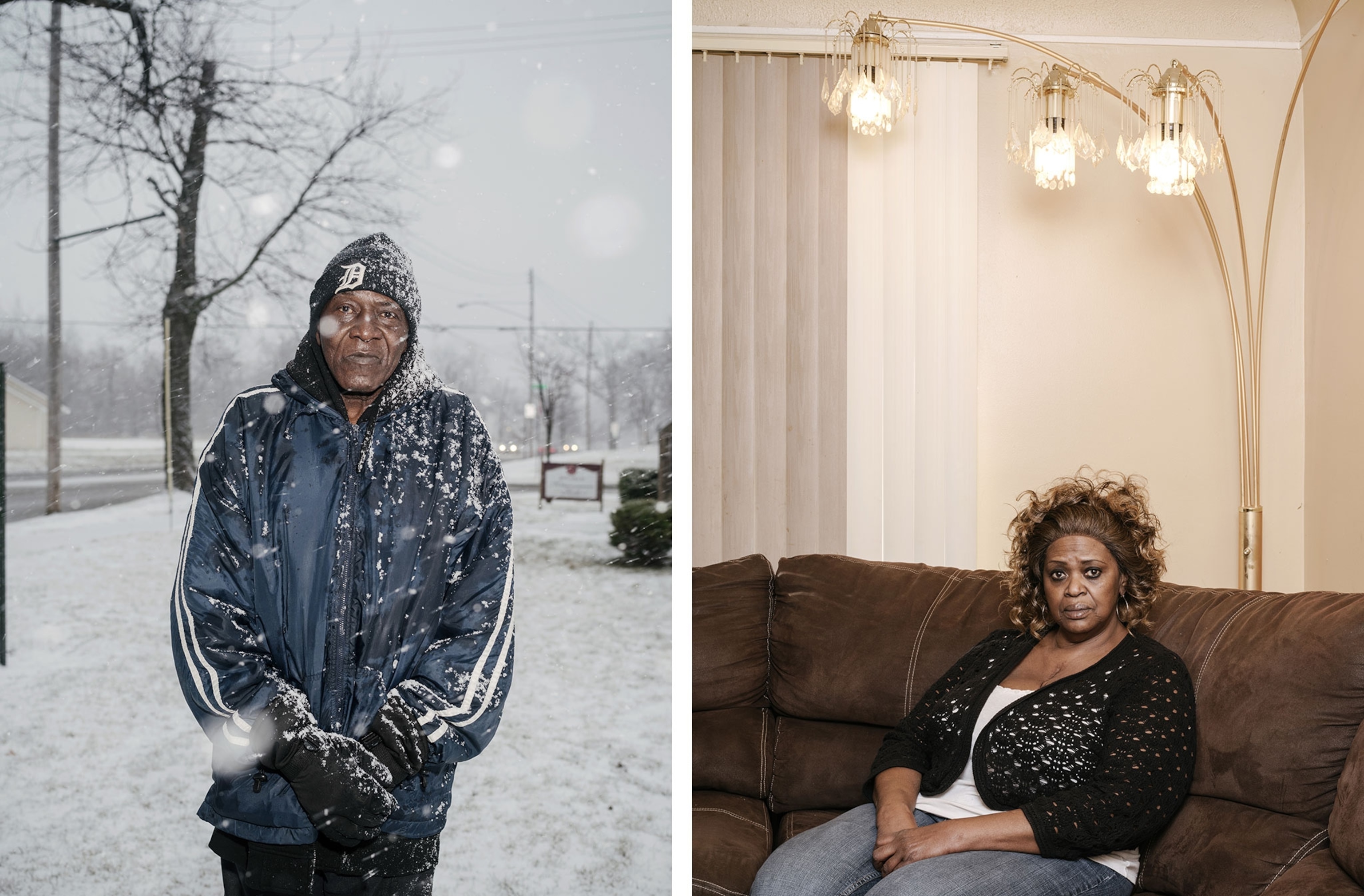
Joseph Gibbs-Bey (left) and Janet Webb (right)
“I’ve been living in Flint, Michigan, for 65 years,” Webb says. “The water sent me to the hospital ‘cause my stomach was hurting me so bad. And they said it had to be something about the water because I never did stop drinking the water (I kept making Kool Aid ‘cause I’m a Kool Aid lover). Until they finally came out and put a sign on the street to stop drinking the water, that’s when I stopped. But by that time I had consumed a lot of it.
“It’s just not right the way they don’t wanna really do nothing about it,” she says. “I paid the price ‘cause it really got to me. I’m just now getting better. Every once in a while I’ll still have a bout with my stomach messing up.
“You know, you get over one hump and then is always something to throw you back. But I’m just thankful to God. He got my back … I’m a strong black woman. You can’t knock me down ‘cause I’m gonna keep right on moving.”
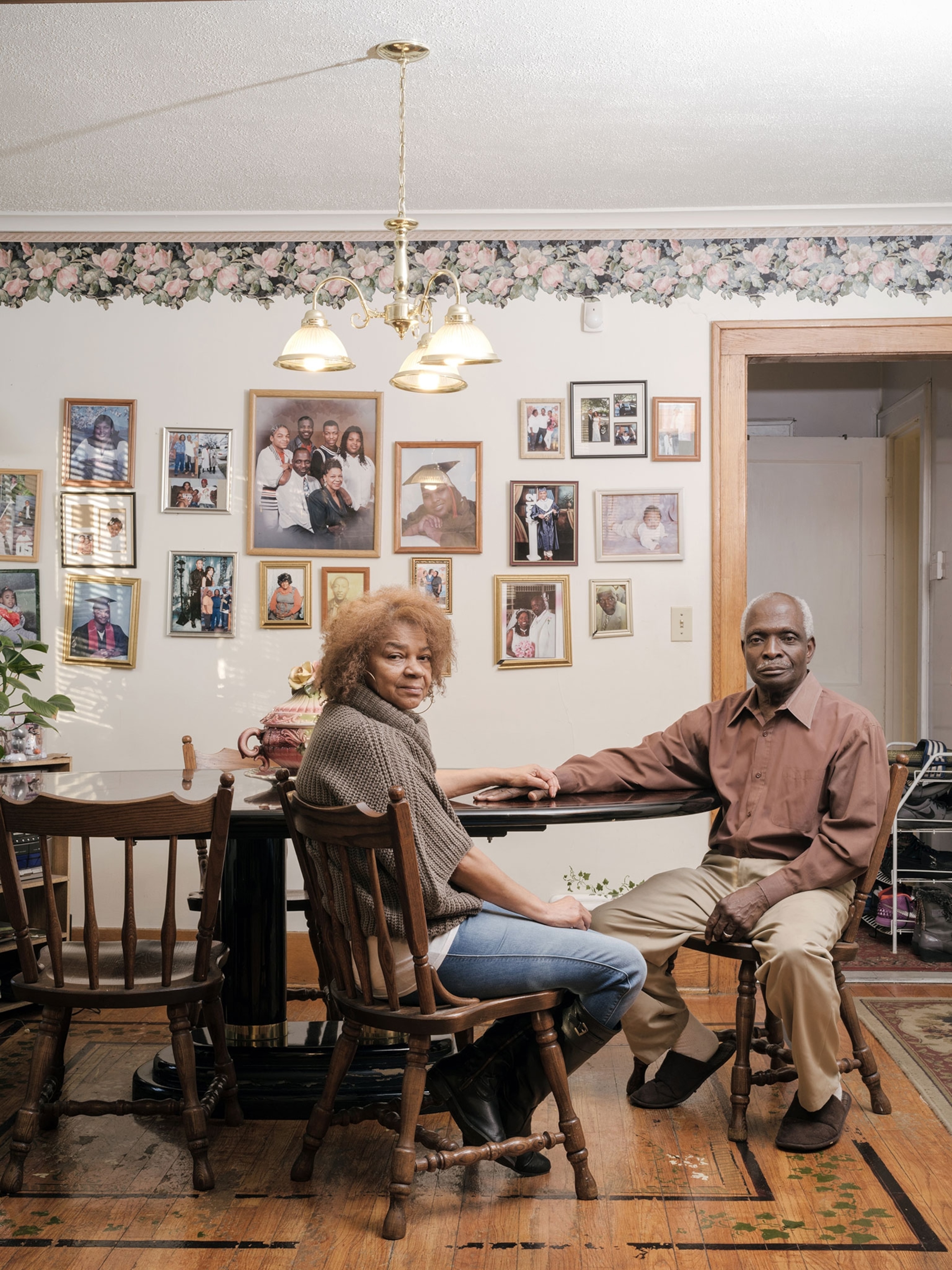
Mary and Pastor Franklin D. Johnson
“I have been in Flint, Michigan, all my life. I was born and raised here,” Pastor Franklin D. Johnson says. “We cannot keep getting bottled water delivered to us.”
“I’m just hurt,” Mary Johnson says. “I’m devastated. Because they told us lies after lies (‘The water is OK’), and I believed in my government.
“Flint is not rich, it’s minority,” she says. “Poor whites, poor blacks … and they knew about it? That hurts. If it wasn’t for the doctor at Hurley Medical Center, testing our children, we would be still drinking the water.”

